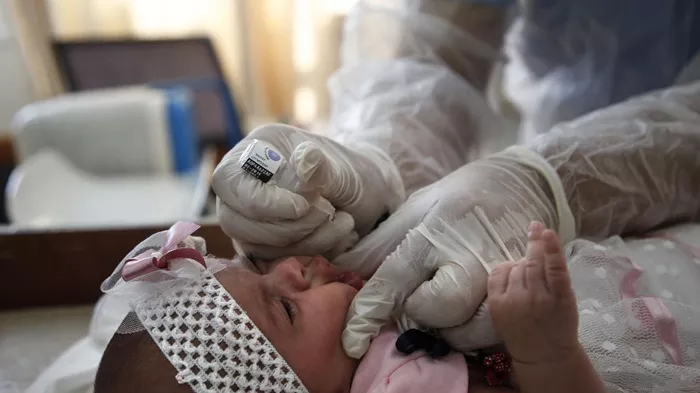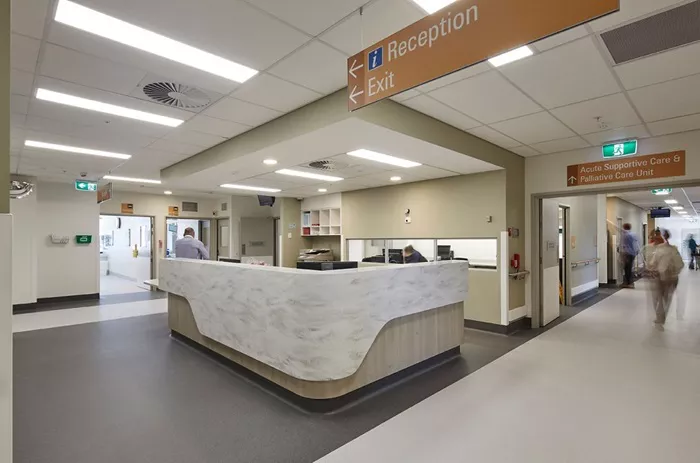Israel’s military announced on Sunday that it had delivered polio vaccines for over a million people to Gaza, following the confirmation of the first polio case in the region in 25 years. However, the distribution of these vaccines remains unclear due to ongoing conflict and humanitarian challenges in the war-torn territory.
The shipment, consisting of more than 25,000 vials of the vaccine, arrived in Gaza, where continued fighting has severely hampered humanitarian efforts during a war that has persisted for over ten months. The method and speed of the vaccine distribution are uncertain in a region where public health services are under immense strain.
The outbreak has raised significant concern, with polio virus traces detected in wastewater at six locations across Gaza in July, suggesting the presence of additional, unconfirmed cases. Aid organizations have prioritized vaccinating more than 600,000 children under the age of 10, urging for an immediate pause in hostilities to facilitate the immunization campaign. Both the World Health Organization (WHO) and the United Nations Children’s Fund (UNICEF) have called for at least a seven-day ceasefire to allow for widespread vaccination.
The United Nations aims to deliver 1.6 million doses of the polio vaccine to Gaza, where the population is struggling with dire living conditions. Hundreds of thousands of displaced Palestinians are crowded into makeshift camps, with limited access to clean water, and inadequate sanitation facilities. The dire situation has forced some families to resort to using contaminated wastewater for drinking and cleaning, exacerbating the risk of polio transmission.
Polio is a highly infectious disease that spreads primarily through contact with contaminated feces, water, or food. It can cause severe respiratory issues and irreversible paralysis, most commonly affecting the legs. Young children are particularly vulnerable to the disease, which can sometimes be fatal.
In a statement, the Israeli military body overseeing Palestinian civilian affairs confirmed that five trucks equipped with special refrigeration units for vaccine storage were brought into Gaza on Friday, in coordination with the U.N. The vaccines were received in Gaza on Sunday. The military noted that vaccinations would be administered by both international and local medical teams at various locations throughout the territory, in coordination with Israel’s military, during “routine humanitarian pauses” designed to allow civilians access to health care.
Since the onset of the war in early October, more than 282,000 vials of the polio vaccine have been delivered to Gaza. However, the region’s healthcare infrastructure is in crisis. According to the U.N., only about a third of Gaza’s 36 hospitals and 40% of its primary healthcare facilities are currently operational, leaving healthcare workers overwhelmed and resources scarce.
Despite these challenges, WHO and UNICEF have committed to executing the vaccination campaign across all municipalities in Gaza, with the support of 2,700 workers. Before the outbreak of war, Gaza had achieved a 99% polio vaccination rate. However, this figure has now dropped to 86%, raising urgent concerns about the potential for further spread of the disease.
[inline_related_posts title=”You Might Be Interested In” title_align=”left” style=”list” number=”6″ align=”none” ids=”11585,11581,11545″ by=”categories” orderby=”rand” order=”DESC” hide_thumb=”no” thumb_right=”no” views=”no” date=”yes” grid_columns=”2″ post_type=”” tax=””]


































